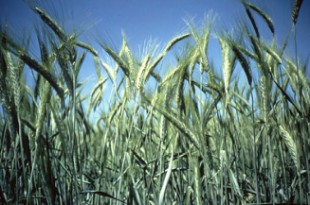 Average commodities prices have eased in recent weeks after peaking in June, according to the Bloomberg Commodity Spot Index, which tracks 23 futures for energy, metal and crop commodities. The index has fallen by 20% since hitting an all-time record level in June. Prices for agri-prods including wheat and other grain crops have started to ease under worries that a stagnating world economy will start to hurt demand going forward in 2022. With the ongoing restrictions stemming from the war in Ukraine and ever-present inflationary forces likely to remain in play this year, nonetheless, the momentary decline was called a relief, however temporary, for consumers and end users of raw materials.
Average commodities prices have eased in recent weeks after peaking in June, according to the Bloomberg Commodity Spot Index, which tracks 23 futures for energy, metal and crop commodities. The index has fallen by 20% since hitting an all-time record level in June. Prices for agri-prods including wheat and other grain crops have started to ease under worries that a stagnating world economy will start to hurt demand going forward in 2022. With the ongoing restrictions stemming from the war in Ukraine and ever-present inflationary forces likely to remain in play this year, nonetheless, the momentary decline was called a relief, however temporary, for consumers and end users of raw materials.
Export shipments of French wheat into non-EU countries saw a massive quadrupling in June YoY to hit 552,000mt, according to new customs and line-up data. Demand saw a rapid recovery in the month after falling below average levels in the preceding months of 2022 as North African buyers re-entered the market with vigour. Morocco was the top destination for French wheat in June with 209,000 mt in total followed by Algeria (89,000mt) and Egypt (77,000mt). The European wheat market was cast into disarray after February when the war in Ukraine saw France’s traditional buyers seeking more Black Sea wheat than usual, which substantially eroded France’s market share. Market observers expect the recovery in demand for French wheat to continue into the second half of 2022 and into 2023 as long as French FOB prices remain competitively priced against Black Sea suppliers including Ukraine, Russia and Romania, particularly given the lower freight costs for sourcing from France compared to Black Sea ports. French wheat exports to non-EU countries in the marketing year that just ended (at 1 July) amounted to 8.28 Mt with China (1.9 Mt), Algeria (1.8 Mt) and Morocco (1.6 Mt) the main destinations, followed by Ivory Coast, Egypt, Angola and Cuba. Most French wheat in the marketing year was exported from Rouen (4.6 Mt), followed by La Pallice (1.7 Mt) and Dunkerque (0.85 Mt).
Ukraine’s SFS (sunflower seed) exports have surged since March, when they nearly ceased entirely at the start of the Russian invasion. More than 1 Mt of SFS has been exported since the 2021-22 marketing year that started in September 2021 versus just 190,000 mt that was exported in the same time period a year earlier. SFS exports in the March-June period (when Ukraine’s Black Sea ports were still blocked) account for some 90% of this volume, nearly surpassed the last record of 1.1 Mt reached in the 1996-97 season. Analysts say the demand surge was fuelled by greater “export profitability” of SFS compared to other crops, which saw skyrocketing prices at the start of the war in Ukraine. Analysts wonder, however, about near future prospects for Ukrainian SFS as EU crushers have increasingly moved toward replacing SFO (sunflower oil) with rapeseed oil wherever possible due to the rising price differential.
European steel markets remain volatile as input costs surge and demand fluctuates. A number of European mills, particularly the smaller ones, have been delaying conversion operations for turning slab into hot-rolled coil (HRC) as the conversion costs have become prohibitively high with the steady rise in gas prices. Natural gas prices have climbed 98% over the past three weeks, traders say, with TTF front-month prices at about EUR 162/MWh now versus EUR 81/MWh observed in mid-June. Gas now accounts for roughly half of the conversion costs for mills to turn slab into HRC, prompting many to start selling their slab outright (ex-works plus prices at about EUR 700/mt) rather than make a loss on producing HRC. Others have been considering shutting down their HRC mills altogether while rising coke prices in Eastern Europe have created another hurdle for European steel mills. Profit margins are said to be comparatively better for plate manufacturers, despite reduced volumes, with imported slab from Brazil being sold at around US$ 750/mt CFR to Baltic-based buyers. Turkey, meanwhile, has introduced anti-dumping levies on flat steel imports after stating that imports from steel producers in South Korea and Europe (including ArcelorMittal, Tata Steel, ThyssenKrupp, Posco and Hyundai Steel) were adversely affecting domestic steelmakers. The Turkish import levies will be set in the range of 7-13%, said the Trade Ministry and the Turkish Steel Producers Association.
In contrast to most commodity prices, which have eased in recent weeks (see above), fertiliser prices for have remained buoyant in June and July due in large part to the dominant production market share of global fertiliser production held by Russia, Belarus and Ukraine. Higher gas prices have also been a very important contributing factor especially in regards to nitrogen fertilizers that require gas as a key part of production. Traders say nitrogen fertilisers in particular were supported in June due to “unprecedented” gains in gas prices even as Europe’s TTF natural gas prices has recently started to fall back to pre-invasion levels. Fears about gas-rationing in the winter, however, are likely to give support to price levels in the second half of the year. Spot prices for phosphate fertilisers have seen comparatively less support as buyers seek reduced prices, which are still, however, being largely resisted by producers to date.
For exclusive news and updates about dry bulk shipbroking, subscribe to the BMTI Daily Report.

